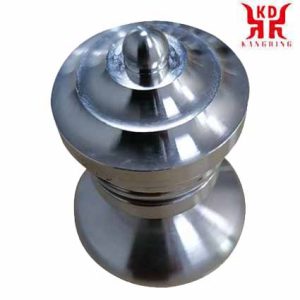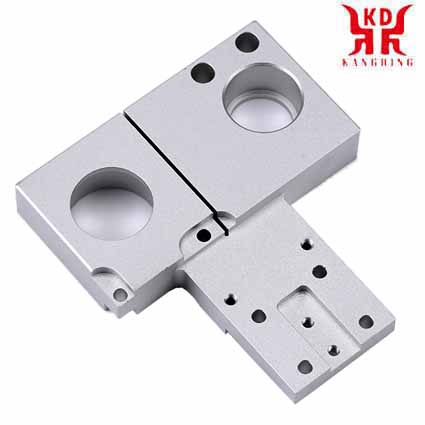Milling stainless steel: this is how it works
Automatic coolant lubrication is useful when milling stainless steel
Milling metals is one of the standard processes in metal processing. لكن, not every metal can be milled equally well. This is especially true for steel and stainless steel. If you still want to mill stainless steel as a do-it-yourselfer, the special features of the respective alloy are extremely important.
Stainless steel is not just stainless steel
Stainless steel is often equated with stainless or stainless steel. Stainless steel does not necessarily have to be rust-free. Rather, the designation stainless steel provides information about certain minimum requirements for the alloy. The content of iron companions such as phosphorus and sulfur must not be higher than 0.025 percent according to DIN EN 10020.

CNC milling parameter setting of stainless steel
– The weight of typical stainless steel components
– Descale the stainless steel
– Magnetize stainless steel
The most common stainless steels used by DIY enthusiasts
لكن, most of the stainless steels you encounter as a home improvement will be stainless steel. The following alloys are most commonly found here:
1.4300 (V2A)
1.4401 (V4A)
V4A is also resistant to salt water and media containing chloride. لكن, the hardness of these stainless steels can also vary. You definitely need very high quality machines and milling heads to be able to mill most conventional stainless steels. لكن, it is important that you always find out about the hardness when buying stainless steel in order to determine whether and which milling cutters are suitable for milling the stainless steel in question.
Milling stainless steel – the milling machine
أولاً, the milling machine must be suitable for metalworking. A router designed for wood is completely unsuitable. So make sure you have a high-quality milling machine that can mill steel and stainless steel. This preferably also includes automatic coolant lubrication during milling.

Milling stainless steel
Suitable milling heads for stainless steel alloys
But the milling heads must also have appropriate properties. You should preferably use HSS milling heads type VA alloyed with cobalt (milling heads HSS-Co type VA). In this composition, the milling head dissipates heat better. If the stainless steel is not too hard, an HSS type N milling head is still possible, but the service life will be significantly reduced again.
The service life depending on the milling task
You can also rough with the milling heads mentioned. If you only want to finish, a solid carbide milling head could also be sufficient, but the service life will be greatly reduced. لكن, it must be mentioned that the tool life is always greatly reduced when roughing.
Ultimately, professional milling of a stainless steel workpiece is therefore always a compromise between tool life and cutting performance. The higher the cutting performance, the more the service life is reduced, which ultimately also represents a question of cost.
Feed and cutting speed
The cutting speed with HSS milling heads should be set to around 10 ل 14 م / min. The feed rate will be correspondingly low depending on the hardness of stainless steel. When milling stainless steel, it is essential to observe the cooling during milling. You should preferably take all the data from a metal table manual based on the specification of the stainless steel in question.
TIPS & TRICKS
A similar amount of effort has to be made for other mechanical processing such as grinding or drilling stainless steel sheet. In the case of hard alloys, it may be sensible to transfer the work to a metalworking specialist in your region, as the material expenditure causes costs due to the relatively short service life of the drilling and milling heads when processing stainless steel.
 English
English العربية
العربية 中文(漢字)
中文(漢字) Čeština
Čeština Dansk
Dansk Nederlands
Nederlands Suomi
Suomi Français
Français Deutsch
Deutsch Italiano
Italiano 日本語
日本語 ಕನ್ನಡ
ಕನ್ನಡ 한국어
한국어 Português
Português Русский
Русский Slovenčina
Slovenčina Español
Español Svenska
Svenska Türkçe
Türkçe

